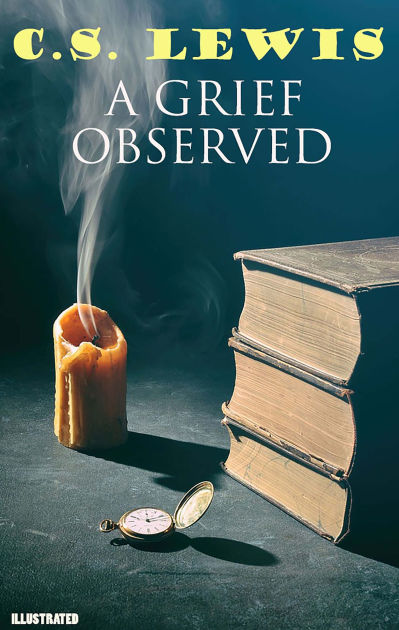“NO! Thank you.”
Responding preemptively to the expected question—“Did you have a good Thanksgiving?”—of course I did. Or will. Of course. Who would dare to say, “I had a terrible Thanksgiving”? That just doesn’t work in the atmosphere of guilt, grace, gratitude. (Thanksgiving in Canada may have a different level of profundity, perhaps with less saccharine.)
I am not a curmudgeon.
If you catch me before 9, I’m not a very social, happy, nice person to be around. My colleagues and family have plenty of evidence. Bright, sunshiny people greeting me with ebullient “Good mornings!” do not receive equal measures of energy. I choke on the call-and-response, “God is good, all the time. All the time, God is good.” I do not like forced-choice responses. I do not like healthcare providers who smile and nod their heads and ask if I’m doing okay after my colonoscopy. Of course, I’m not, you smiling, blue-scrubs-wearing, pushy-nice person. Go away.

Really, I’m not a curmudgeon. And I do not like forced-choice questions. Besides, there are plenty of reasons not to be thankful, not to be good-all-the-time, not to be doing okay. There are occasions for a timeout from the thankfulness parties, times not to hang the “grateful” and “thankful” wall signs in the living room. There are occasions when a pause is needed in the normative pressure that holidays are such a happy time.
Consider, for example, the Blue Christmas commemorations in December that provide ritual, time, space, and words for people who are experiencing heartbreak. Blue Christmas services offer a contrast to holiday happiness to remember their loved ones, to sit with the pain from lifechanging circumstances, to breathe in some calm energy in the sea of frenetic holiday activity. It is a breathing break for people who are mourning, an opportunity to be real among a sea of holiday happiness that they don’t feel and can’t bring themselves to fake.
Thirty years ago, my sister, spouse, and I took a deliberate “anti-Thanksgiving” trip to London. We were determined NOT to celebrate Thanksgiving. We needed to step away from the sentimental-infused American culture because our family had changed dramatically, and we needed space to do something different.
My sister’s husband, a Californian in his early 20s who had married my sister during their time in the U. S. Army, moved to west Michigan, plowed snow, and was absorbed into a very Dutch family, had died from injuries in a car accident a year before. We needed time to breathe, and time away from happy holidays that begin in earnest at Thanksgiving.

We landed in London and headed to a pub for some traditional English food, only to be greeted by a very cheery server who could smell our Americanness a block away. He enthusiastically announced that they had a pub special of a Thanksgiving dinner they were serving. All three of us responded at once with, “NO!” Even then, it took some convincing so that we could order the ordinary pub food of fish and chips and radiantly green, mushy peas. Please.
The anti-Thanksgiving weekend was a step out of the ordinary, not done in anger or ingratitude for family, faith, and all the very good things of our lives. It was a way to regroup so that we could acknowledge loss and its deep impact on all of us. It was like the moment you need after you bang your knee or elbow and have to catch your breath and do some self-talk to get past that momentary pain so that you can function again.
I find it ironic that American culture holds an appreciation for people who “tell it like it is,” and at the same time invests so much in platitudes, positivity, and superficial expressions. Although they serve a purpose, social exchanges about holidays, the weather, and general greetings are easy targets for critique. Open-ended questions, as you may recall from communications class, can be a can of worms! Asking me how I spent my Thanksgiving Day might seem nosey, and might result in too much information, but for me it would allow for a more honest exchange than, “Did you have a nice Thanksgiving?” Depending on the response, we could learn more and even build a stronger appreciation for each other.
Writing a list of things for which I am not thankful reminds me of the ways I feel weighed down: climate change, hurricanes, healthcare and economic disparities, nuisances like flat tires and ticks, or monumental dynamics like inequity and abuse of power. There are many heavy forces in the world and in my own community that I should not push away to celebrate holidays.

Finding literature that grapples with the complex feelings of faith in all seasons of life can be a challenge. The forces of positivity infiltrate Christian writing, making it difficult to find material that honestly and forthrightly addresses how difficult life can be. C.S. Lewis portrays the very real and painful and faith-shaking experience of grief in his book, A Grief Observed. He “keeps it real” as he mourns the death of his wife Joy. And his essay on “The Weight of Glory” reminds us of the incredible infusion of God’s gifts in each of us.
“Keeping it real” is a phrase friends of ours use after an exchange of differing opinions or disclosing a challenging part of life. It touches on the truthful stories we share with each other, rather than the easy, gliding, predictable responses. We don’t always have to play along with the kind of faith expression that skews everything toward the positive—in a singsong, Life of Brian, “always look on the bright side of life” manner.
Perhaps you’ll join me in trying to make the Thanksgiving and holiday seasons less happy and more consequential. Certainly, thank the cooks and hosts and drivers. Obviously, thank God for rich abundance all around. But also appreciate the deeply human and holy in all those around, serving as magnifying glasses on the work the Spirit is doing underneath the surface.
Header photo by Victor Clime on Unsplash


13 Responses
Can I be grateful for this blog that allows me to be a little more honest for the ways in which I struggle to be grateful? I hope so. Thanks, Cindi.
So good, Cindi. Thank you. I, like you, do not like forced response questions. Or even statements. Like. “And all God’s people said . . . “
Oh well.
Well said Cindi. I appreciate your reminder to ask open ended questions about the holiday in particular — without answering for them. If I may add to pet peeves, mine is: How are you…good?
You speak for many of us, Including me. Thank you, Cindy.
Let me be the first male to say, “Thank you!” On the “amen” too. Rd
Hi Cindi: Thanks for this. I too have found much to be grateful for in Lewis’s A Grief Observed. It changed me profoundly when I read it in college. In keeping it real, it helps me to remember that there is nothing more real than God and God’s kingdom, which has made me wonder if there’s an etymological connection between the words “real” and “realm.” Even if there’s not, there should be. In God’s realm, the hard reality of “It is what it is” meets the joyful reality of “I am who I am.” Sorrowful, yet always rejoicing, said Paul. My all our thanksgivings be very real.
Thank you Cindi! Beautifully expressed.
Thank you for sharing this perspective. Not everyone will have the Norman Rockwell kind of Thanksgiving that our society expects. Thank you for reminding us to reach out to those we know in less than ideal circumstances in the coming weeks.
Thank you for this, Cindi. When reading this, it brought Hamlet’s memorable words back to mind: “This above all: to thine own self be true, And it must follow, as the night the day, Thou canst not then be false to any man [anyone].”
Several years ago my husband and I “skipped Thanksgiving.” It had been a difficult year and I just couldn’t fake it through the “Happy Thanksgiving” season. I guess i just needed to keep things real. We escaped to Santa Fe, New Mexico from our home in Phoenix, Arizona. In Santa Fe we rented a quaint one room Airbnb. We had no obligations or schedules to keep. Our take-out Thanksgiving meal was prepared by Dennys. The time away from the typical holiday rituals gave us time to rest and reflect. We may never need to “run away” from a holiday again, but we will always look back on that Thanksgiving trip to Santa Fe with gratitude for the reprieve it offered.
It took me two days to respond. This is thought-provoking on so many levels. On the one hand, I believe intentional gratitude is a good and necessary practice. Most of us, most of the time, have it pretty good. On the other hand, does God prefer authenticity or practiced platitudes? I tend to picture God as that parent who hugs rather than lectures and hastily coerces her child. Or maybe that chaplain who listens, tearfully, refraining from, “God has a better plan.”
I wonder if gratitude has different seasons and expressions? I tend to think my grumpiness and injustice-angst is a sin but I suspect God is bigger than that.
Thanks for this reflection!
Thanks for posting, Cindi.
This article was a gentle reminder to
“To keep it real man “ these words spoken to me as a parting remark from a young man when involved in the cadet program of the Reformed church.
Five words that describe the highest compliment given and the best advice given, from someone who just appreciated the genuine honesty from a fellow human being.
Thanks for both of you just being who you are!
John and Laura
Hear, hear!! Especially about the “call-and-response”. Personally, I’m finding it a bit easier to keep it real in retirement, even in treating myself (and hopefully others?) with more grace. Thanks, Cindi.